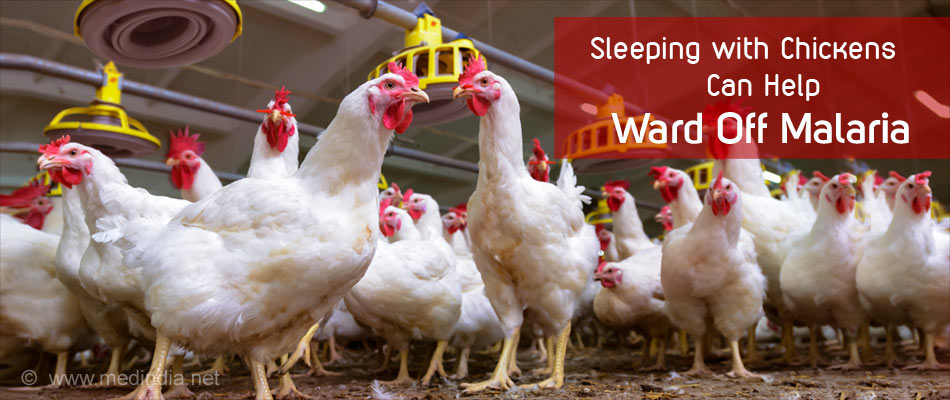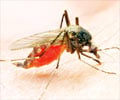- Malaria, a mosquito-borne infectious disease is caused by Plasmodium
species.
- Sleeping with a chicken next to your bed can help beat malaria.
- A study in three villages in Ethiopia found that mosquitoes are
repelled by the smell of chickens.
The smell of
live chicken helps ward off malaria-spreading mosquitoes. The scent compounds
from chicken might deter mosquito diseases.
Researchers analyzed the behavior of
malaria-carrying mosquito Anopheles arabiensis in three villages in western Ethiopia, where people share their living quarters with livestock. The study results found that mosquitoes are strongly attracted to human/animal blood, and when left outdoors they randomly feed on cattle, sheep or goats. Anopheles arabiensis is one of the most important vectors of malaria in Sub-Saharan Africa. It attacks both indoors and outdoors.
‘Malaria-transmitting female mosquitoes (Anopheles arabiensis) avoid feeding on certain animals such as chickens by using their sense of smell.’
"Chicken
odorants acted as natural repellents," said study senior author Professor
Rickard Ignell, a chemical ecologist at the Swedish University of Agricultural
Sciences. He also added on saying “We were surprised to find that malaria
mosquitoes are repelled by the odors emitted by chickens.”
Malaria Facts and Statistics
- Approximately 3.2 billion people are at risk of malaria; especially children under 5 years of age are at a higher risk
- Globally in 2015, 214 million cases of malaria were reported
- Sub-Saharan Africa is hit hardest by malaria
- Malaria is preventable and curable
- Vector control is the main way to prevent and reduce malaria transmission
To study the mosquito-repelling power, researchers at the Swedish University of Agricultural Sciences and Addis Ababa University, Ethiopia made few volunteers aged between 27 and 36 years from the villages in Ethiopia to sleep under untreated bed nets in thatched houses. Then the researchers set mosquito traps which sucked up the
mosquitoes that got close to the sleepers. The mosquito traps were set up in 11 homes for 11 days. In the 11 thatched houses, the researchers substituted the mosquito traps with a variety of scents and collected the mosquitoes.
Researchers found that only a few mosquitoes were caught in the trap baited
with compounds extracted from chicken feathers when compared with traps baited
with other scents. The same repellent effect was seen when a cage with live
chicken was kept next to the trap.
Isobutyl
butyrate, naphthalene, hexadecane and trans-limonene - are the four compounds
found in chicken feathers that appeared to have a repellent effect.
Why Chicken Odors Repelled by Mosquitoes?
Professor
Rickard Ignell, the senior author of the study stated three possible reasons
for why odors from chicken were repelled by the arabiensis mosquitoes
- Chicken blood might be poor in nutrients
- Chicken blood might be difficult for the mosquito to digest
- Birds pose threat to mosquitoes, so insects have evolved to
avoid them
Dr Ignell added: "People in
sub-Saharan Africa have suffered considerably under the burden of malaria over
an extended period of time and mosquitoes are becoming increasingly
physiologically resistant to pesticides, while also changing their feeding
habits for example by moving from indoors to outdoors.
"For
this reason there is a need to develop novel control methods. In our study, we
have been able to identify a number of natural odor compounds which could repel
host-seeking malaria mosquitoes and prevent them from getting in contact with
people."
Advertisement
The new findings could pave for new,
all-natural mosquito repellents that can be used in combination with bed nets
to protect people from malaria and other mosquito-borne diseases.
The research is
reported in
Malaria Journal. Advertisement
References:- To protect yourself from malaria sleep with a chicken next to your bed - (http://www.eurekalert.org/pub_releases/2016-07/bc-tpy071816.php)
- Malaria Key facts - http://www.who.int/mediacentre/factsheets/fs094/en/)
Source-Medindia










